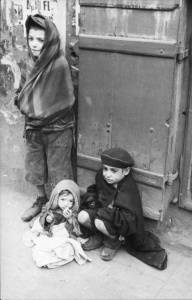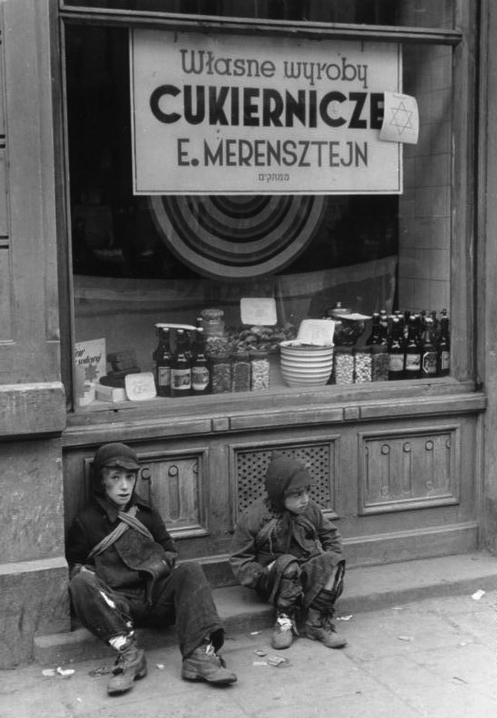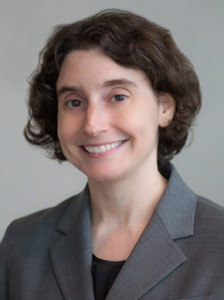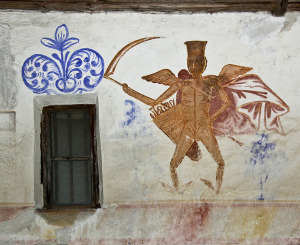Visiting hour
by Suzanne ReismanThe hospital room smelled of antiseptic cleaner, but it could not mask the odor of sickness. It was Michael’s eighty-fourth birthday. He did not feel like celebrating. He had just survived a week in the Intensive Care Unit after his kidneys, heart and lungs had failed. When he was moved out of the ICU, the doctor had assured him that his prognosis for recovery was excellent.
“From what I understand, you’ve survived worse, my friend,” the fat balding man had said with a broad grin as he tapped Michael’s chart. Michael stared at him, wondering what there was to smile about.
Since the doctor’s declaration, it seemed like the stream of visiting wellwishers was non-stop. Maybe for his birthday he could get some peace and quiet. He was finally almost alone. Most of his family had left his bedside to get lunch at the cafeteria. Only his oldest granddaughter – a short, slightly overweight nineteen-year-old with a shana punim hidden behind dark frizzy hair – remained by his side. She was watching him through a curtain of bangs, fidgeting in the plastic chair. He could tell she wanted to say something, and was searching for the right words. He had seen the same expression on her face once before. He would never forget it.
At the time, Robyn had been eight years old. Michael sat, as always, at the head of the dining-room table by the window. A dish of flayed smoked whitefish lay in front of him. He picked out small pieces of fish for her from the golden carcass, removing each slender bone before placing the morsel on her plate. He concentrated on his task. God forbid he should miss a bone and she choke.
 “Zaide,” she said in a small voice, and he looked across the table and saw her fidgeting on the wooden chair. Before he could ask what was wrong, the question slipped through her lips. “What happened to your family from Warsaw?”
“Zaide,” she said in a small voice, and he looked across the table and saw her fidgeting on the wooden chair. Before he could ask what was wrong, the question slipped through her lips. “What happened to your family from Warsaw?”
Michael froze. For a long time, he said nothing because if he said anything, he would go back there, to that time, and he could not do that.
Robyn climbed down from her seat, moved to his side, and put her head against his arm. When he glanced down, he could see fear in her eyes. He shook his head, almost a twitch, and smiled at his granddaughter. His wife was in the other room, watching TV. He called to her to bring him a pear. Always obedient, she scurried in from the living room to do as he asked. As she retreated from the dining room, he held it up.
“You see this pear?”
“Yes,” Robyn said.
“It’s shaped like your bubbe’s tuchus,” he said. They laughed, and his wife turned to shake her finger at the naughty joke.
Robyn had never asked him about his family again.
Now she reached for his hand. Her palm was soft against his papery skin. He was pleased to find that his grip was still strong. Despite everything, these muscles had not lost the strength they had developed during years of factory work. Robyn squeezed back and shut her eyes. Tears formed at the corners.
“Bubbeleh,” Michael said. “What’s bothering you?”
His granddaughter opened her eyes and took a deep breath. “Zaide,” she said, her voice cracking. “Zaide, will you tell me about your family in Warsaw from before the Holocaust?”
There. It was done, and he saw the relief in her face. She squeezed his hand, but his grip on hers slackened. His eyes flicked away from her, and he focused intently on a shadow in the distance, just beyond her left shoulder.
“Zaide, are you okay?” she asked. “There’s no one here except me.”
Michael hadn’t meant to scare her. He beckoned her to come closer, and with enormous effort he lifted his head. (Funny, he thought to himself, how his neck was failing him but his arms could keep going forever.) He brushed his chapped lips against her hot cheek with a kiss.
Once he settled back into his pillow, he smiled. “Listen, Robyn,” he said. “Let me tell you a story: A middle-aged woman had a heart attack and was rushed to the hospital. While she was on the operating table, she saw the Angel of Death.
“‘Is it my time?’ she asked him.
“Malakh ha-mavis focused his thousand eyes on her and shook his head. ‘No,’ he said. ‘I wanted to let you know you have another thirty years of life ahead of you to enjoy.’
“When the woman recovered from her bypass surgery, she decided to have a tummy tuck, a face lift and the works. After all, Death had told her to enjoy the next thirty years, so she wanted to look good. However, as soon as she left the hospital, she was hit by a speeding ambulance and lay dying on the street.
“Once again, she saw Malakh ha-mavis. ‘Hey,’ she said, ‘I thought you said I have another thirty years to enjoy. What happened?’
“Death leaned over her body to closely inspect her with all of its eyes. ‘Oh shit,’ he mumbled. ‘I didn’t recognize you.’”
Michael laughed loudly, and Robyn joined him. Like old times. He could see that the sound soothed her. There had not been much laughing lately. Slowly, his laughter turned into spasms of coughing. Before he closed his eyes, he noticed the alarm on Robyn’s face.
“I think,” he said, opening his eyes and reaching for her hand again, “I need a nap now. We’ll talk more later.”
She didn’t move. Michael waved at her. “Go, go.”
Robyn kissed his sweating brow. “Okay, Zaide. I’ll be back – that’s a promise,” she said. He watched as she tiptoed from the room and shut the door softly behind her.
…
A few minutes later, the door opened again. Malakh ha-mavis glided into the room. Michael waited for him, hands folded over his midsection. Death lowered himself into the plastic chair beside the bed. Michael preferred his granddaughter, but didn’t want to be rude to the new visitor.
“Hello,” Malakh ha-mavis said. Michael saw his reflection in each of Death’s thousand eyes. “I’ve been looking for you for a long time. You are quite skilled at avoiding me.”
Michael glanced around the bed. Tubes flowed from his body to various machines. He was connected to an IV line, a heart monitor, a catheter, and God only knew what else. He had evaded Malakh ha-mavis for over fifty years.
“I finally let you find me,” Michael said. “It took you long enough.” Various dodges ran through his mind. The escape from Warsaw in 1939. The release from the gulag outside Leningrad in 1942. The Kielce pogrom in 1946. The Chicago bookie who beat him over a gambling debt in 1967. The fall down two flights of stairs and breaking of his hip in 1983, also Chicago. (Who knew Chicago was so dangerous?) All miracles.
Death hunched over slightly as he lit a cigarette. The smoke wafted into Michael’s nose. He nodded at the pack of cigarettes. “Mind if I have one?”
“I’d make a joke that these will kill you, but that’s pretty cliché,” Death said as he shrugged and passed one. “So just enjoy.”
“Thanks.” Michael lit it with a steady hand. When he was diagnosed with emphysema in the mid-1980s, Michael had quit his decades-long habit cold turkey. Another way he had thrown Death off his trail. It bought him another eleven years. The result was that he lived to see both of his granddaughters called to the Torah as Bat Mitzvahs, the first women in his family to do so. A small, worthy sacrifice in the grand scheme of things. Such nachas the girls gave him! He took a long drag and exhaled with pleasure.
The former adversaries smoked in silence for a few minutes.
“You know,” Malakh ha-mavis finally said, “there was a massacre at Srebrenica earlier this year. It kept me busy, just like when I first came for you.”
Michael said nothing. Death nodded. “Yes. When you left Warsaw, I was waiting in the shadows of the courtyard. Watching.”
A stabbing pain shot through Michael’s heart and he closed his eyes. For all these years, he had refused to remember. But now, the memory seized control, and he was back to that day when he was nearly twenty-eight years old, when he was known as Mottel.
 It was afternoon when he returned to the flat after rounding up provisions through black market trades. Three sets of green eyes greeted him as he entered. His older sisters Estera, Tema and Doba were gathered around the same dining table they had occupied a few nights prior to break the Yom Kippur fast. His mother rested in the bed in the alcove. A pot bubbled on the stove. The aroma of chicken broth filled the air.
It was afternoon when he returned to the flat after rounding up provisions through black market trades. Three sets of green eyes greeted him as he entered. His older sisters Estera, Tema and Doba were gathered around the same dining table they had occupied a few nights prior to break the Yom Kippur fast. His mother rested in the bed in the alcove. A pot bubbled on the stove. The aroma of chicken broth filled the air.
“What?” he asked.
“It’s been decided,” Estera said. “You leave tonight for Russian territory. You have to get out before the Germans get here.”
“No!” The bag with supplies slipped out of his arms. Tan chickpeas spilled onto the floor, rolling in all directions like a wild game of marbles. “I just spoke with my black market contact. There is a lot of work for me. I can take care of you.”
The noise brought his mother from her alcove. She was not wearing her sheitel, and Mottel was taken aback by how old she looked with her downy white tufts of hair. Pesa observed her daughters shaking their heads and stood with her arms folded until Doba spoke. “We are women with children, and Mameh is frail. Tema will move in with Mameh and take care of her. The Nazis won’t bother us. They want men. We know that is what the mayor said. After everything else that has happened, we can’t bear to lose you to them. You have the best chance on your own. Please take it. Whatever happens is Hashem’s will. Deep down, you know this.”
Tema’s voice was almost a whisper. “I agree.”
Mottel’s face grew hot. “In the last ten years, how many times have I thought about leaving – to Palestine, to America – and I did not go. I did not go because I could not leave you, and you refused to leave with me. And if I did not leave you in better times, I am absolutely not leaving you now.”
Pesa stood next to him and took his hand. “As Rachel sent Jacob away to protect him, I am also telling you to flee. You will go. Do not turn me into Mara, bitter at the loss of her sons. Hashem will see to us. You must not lose this belief, or else I have nothing to live for.”
His sisters nodded. “You must listen to Mameh,” Tema said.
He had listened to them for so long. Always they wanted him to remain in Warsaw, saying that to emigrate was not God’s will, and now they were telling him he must go. He was sure that they were wrong, that he should stay. Maybe this was God’s ultimate test for him. He sat at the table, defeated.
The women rose and in a whirlwind prepared his departure. Tema packed a small satchel of food and clothes. Estera and Pesa collected money from the deep pockets of their ragged aprons. Doba counted the groszy at the table.
When everything was ready they shuttled Mottel to the door. He had no idea where he was going; he would follow the torrent of refugees and hope they led him to a safer place. Maybe he would even find a familiar, friendly face with whom to travel.
“If all goes well, maybe I will land in America,” he told them as they walked down the stairs. “But I heard of a man who went there, and when he arrived they gave him a test for his eyesight at Ellis Island. The immigration clerk pointed to the first line in a chart with the letters P R Z E D W Z Y N S K Y.
“‘Now sir,” said the clerk. ‘Can you read this?’
“‘Can I read it?’ replied immigrant. ‘The man used to be my next-door neighbor. Don’t tell me he’s here, I can’t stand him!’”
No one reacted for a moment, then Pesa filled the stairwell with a belly laugh Mottel did not know his mother had had in her. His sisters joined. They stood in the dim entryway, wiping tears from their eyes.
“Oh, Mottel, this should be the worst hardship you endure,” his mother said.
They entered the courtyard, blinked in the daylight, and walked to the gate together. Before he left the only home he had ever known, Mottel kissed his sisters and mother goodbye.
“Go, go,” Pesa said in a soothing voice.
He began to walk. A few paces down the street, he paused to light a cigarette and turned back one last time to look at them. His mother’s white hair stood out against the darkening sky. Doba called out, “L’shanah haba’ah birushalayim – next year in Jerusalem.”
He never saw them again.
…
When he opened his eyes, they were wet. Through his tears, he saw that Death was sitting patiently in the chair. He had stopped smoking, and all of his eyes were trained on Michael. The sword with the poison tip lay across his lap.
Michael let out a long breath. “Nu, let’s go already. It’s time.”
Malakh ha-mavis smiled. He walked to the bed and held his sword over Michael’s face. A droplet fell. Michael opened his mouth, swallowed the plump drop, and closed his eyes. He allowed his former enemy to take his hand, and together they left the room without a sound.
Robyn sat near the door. As Michael passed her, he noticed the hairs on her arms rising, and she shuddered and rubbed them. For a moment, she looked confused, but then she whispered, “Goodbye, Zaide. I hope you find your mother and sisters again.”
 Suzanne Reisman earned an MFA in Creative Writing from The New School. She recently completed her first novel, which was longlisted for the 2015 Caledonia Novel Award and Bath Novel Award. She lives in New York.
Suzanne Reisman earned an MFA in Creative Writing from The New School. She recently completed her first novel, which was longlisted for the 2015 Caledonia Novel Award and Bath Novel Award. She lives in New York.
suzannereisman.wordpress.com
@suzannereisman


